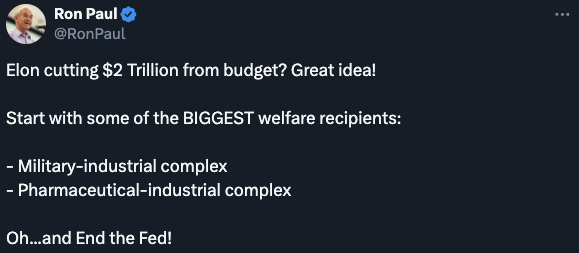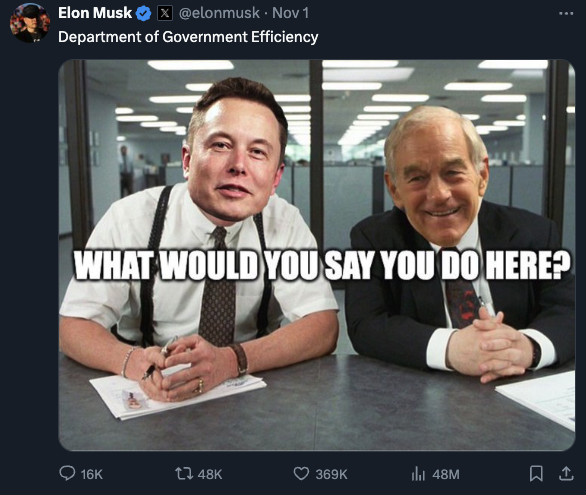Civil War by Another Name
![]() “The Fifth Pathway…”
“The Fifth Pathway…”
 Decisions, decisions…
Decisions, decisions…

We pick up this morning where we left off with Bullet No. 1 last Tuesday — the election “war game” carried out by several dozen Democrats and Never-Trump Republicans in the summer of 2020.
To refresh your memory, the most eyebrow-raising scenario to emerge from the exercise was one characterized as a “clear Trump win” — that is, Trump comes out on top in the Electoral College but Joe Biden garners a five-point margin in the popular vote.
Biden — played in this exercise by the longtime Democratic operative John Podesta — puts up a fight. He encourages competing slates of electors in states where he lost narrowly. He even eggs on the West Coast states to threaten secession unless Republicans agree to abolish the Electoral College and to split California into five states to boost its representation in the Senate.
The certification of the election by Congress deadlocks — and as the group’s final report summed up, “Jan. 20 arrived without a single president-elect entitled to be commander in chief after noon that day. It was unclear what the military would do in this situation.”
 Today we tease out what might happen if similar events unfold… in reality… in 2024.
Today we tease out what might happen if similar events unfold… in reality… in 2024.
Eleven days ago, The New York Times published an opinion piece titled “There Are Four Anti-Trump Pathways We Failed to Take. There Is a Fifth.”
The authors are Steven Levitsky and Daniel Ziblatt, professors of government at Harvard.
Some of the pathways were in fact very much taken; they just didn’t achieve the authors’ desired result. In any event, they were…
- Let the election process play out and trust that in the end, everything will be all right. (Nope, Trump was elected in 2016)
- Keep the offending candidate off the ballot. (The Supreme Court squelched this effort last March)
- Hope the political parties keep the offending candidate from achieving party leadership. (The GOP electorate gave Trump its nomination for a third consecutive time this year)
- Hope a coalition emerges to make the offending candidate a pariah. (This has flopped. Few big-name Republicans apart from Dick Cheney and Liz Cheney are openly supporting Kamala Harris. George W. Bush and Mitt Romney are keeping a stony silence.)
 Which leads to pathway No. 5, a choice the authors call “societal mobilization.”
Which leads to pathway No. 5, a choice the authors call “societal mobilization.”
“When the constitutional order is under threat,” they write, “influential groups and societal leaders — chief executives, religious leaders, labor leaders and prominent retired public officials — must speak out, reminding citizens of the red lines that democratic societies must never cross. And when politicians cross those red lines, society’s most prominent voices must publicly and forcefully repudiate them.”
But as Election Day approaches, the authors conclude that this choice too appears to be fizzling. As an example, they cite J.P. Morgan Chase CEO Jamie Dimon saying his company would “survive and thrive” no matter the election’s outcome.
(That the authors would look upon Jamie Dimon as an avatar of moral authority says something truly twisted about their worldview…)
So the story’s over?
Not at all. Read on…
![]() Mob Rule?
Mob Rule?
 What if the top-down process described by the authors plays out instead as a bottom-up phenomenon — angry mobs pushing “influential groups and societal leaders” to prevent a victorious Trump from taking office?
What if the top-down process described by the authors plays out instead as a bottom-up phenomenon — angry mobs pushing “influential groups and societal leaders” to prevent a victorious Trump from taking office?
This is the possibility entertained in an article published Friday by the always-intriguing John Robb at his Global Guerrillas site on Substack.
In this piece, he invokes the specter of what he calls the “network swarm” — a speedy and spontaneous mass mobilization behind a cause.
The most vivid recent example was after Russia invaded Ukraine in February 2022.
Remember the outrage against all things Russian on social media? All the people flying Ukraine flags? The bars that would no longer serve Stolichnaya vodka (even though it’s made in Latvia)? The symphony orchestras that canceled performances of Tchaikovsky (who lived in the 19th century)?
Yeah, that happened. And Robb says it wasn’t because Joe Biden or anyone else was marshaling the spirit of the people.
Instead it was the network swarm taking the lead — pushing Joe Biden to impose unprecedented financial sanctions on Russia, and pushing much of corporate America to shut down their Russian operations.
 In the instance of a contested election outcome, Robb envisions “rapid mobilization (tens of millions of supporters mobilized in days) that take to the streets and decentralized on/offline action that coerces governmental bureaucracies and corporations to side with the swarm.
In the instance of a contested election outcome, Robb envisions “rapid mobilization (tens of millions of supporters mobilized in days) that take to the streets and decentralized on/offline action that coerces governmental bureaucracies and corporations to side with the swarm.
“This mobilization overwhelms and suppresses all dissent (individuals, groups and network platforms).”
Of course, Trump supporters constitute their own networked tribe. But Robb says they don’t have what it takes to become a swarm. Only Trump opponents have “the potential to create a single unifying threat narrative,” he says — the one that Trump is a fascist.
As Robb sees it, the pro-Trump crowd lacks “a unifying pejorative or threat narrative strong enough to serve as the basis for a counter-swarm. All it can do is dissent with a weak ‘not a fascist’ or ‘don’t do that, it’s dangerous.’”
No, none of this ends in a good place: “There aren’t any protections against a swarm rapidly mobilizing,” Robb concludes. “Once it is mobilized, it will quickly seek to shut down all dissent at every level (including extrajudicial means to suppress X).”
➢ Here too, the Ukraine example is instructive. Recall how critics of U.S. aid to Ukraine were frequently canceled on social media, their accounts demonetized not for “hate speech” or “misinformation” but simply for dissenting from the U.S. foreign-policy consensus.
What’s more, “decentralized elements of the swarm (devoid of any worry over long-term damage to the country’s stability, the rule of law, or cohesion) will simultaneously seek to overwhelm the opposition to overturn the election,” Robb says.
A disturbing scenario, yes. But one we must nonetheless entertain now rather than later.
![]() An Election-Driven Market Drop of 20%
An Election-Driven Market Drop of 20%
 As Election Day approaches, the mainstream tells us Wall Street’s confidence in a Trump victory continues to fade…
As Election Day approaches, the mainstream tells us Wall Street’s confidence in a Trump victory continues to fade…

“The dollar weakened and Treasuries advanced on Monday,” says the Financial Times, “as global markets sharply reined in their bets on a victory for Republican candidate Donald Trump in the U.S. presidential race.”
The salmon-colored rag points to a poll showing Kamala Harris in the lead in Iowa — a state Trump carried in 2020 and 2016, but carried by Barack Obama in 2012 and 2008.
It’s one more signpost on the road to a contested outcome. As Paradigm’s AI-and-crypto authority James Altucher reminds us, the stock market did not react well to the Bush-Gore drama in 2000 — which went unresolved for 35 days until the Supreme Court stepped in.
“The market fell 20% between November and January,” says James.
No guarantees of a repeat, though. Back then, the dot-com bust had already been underway for eight months by the time Election Day 2000 rolled around. This year, the major indexes have all touched record highs within the last month.
 The most intriguing market action today, however, is in oil.
The most intriguing market action today, however, is in oil.
Over the weekend, the Pentagon sent B-52 bombers to the Middle East for what it said was the “protection of U.S. citizens and forces in the Middle East, the defense of Israel and de-escalation.”
Seriously? What exactly is “defensive” or “de-escalating” about B-52s? Or the ballistic missile defense destroyers that are also being dispatched? Or the fighter squadron and tanker aircraft?
The possibility, however remote, of a wag-the-dog scenario on election eve — imagine Kamala Harris being called off the campaign trail later today to hightail it to the Situation Room — has sent crude up over 2%, approaching $71 again.
The major stock indexes are mixed — the S&P 500 nearly flat, the Nasdaq up a quarter percent and the Dow down a third of a percent. Bonds are indeed rallying, pushing yields down; the yield on a 10-year Treasury note is back below 4.3%.
The dollar index is down, but not much, at 103.77. Whether it’s the election or some other factor, the dollar rally of early and mid-October is definitely taking a breather.
Precious metals are little moved from Friday’s closes — gold at $2,736 and silver at $32.49. Bitcoin is biding its time at $68,573.
![]() Elon Musk, Ron Paul and the DOGE
Elon Musk, Ron Paul and the DOGE
 Maybe Elon Musk really is serious about slashing the size of government.
Maybe Elon Musk really is serious about slashing the size of government.
The story has been rumbling beneath the surface for weeks — Musk volunteering himself to run a “Department of Government Efficiency” under a Trump administration.
At first blush, it struck me as yet another empty attention-grabbing stunt of Musk’s. Department of Government Efficiency? The name is an oxymoron. Government by its nature is inefficient.
Besides, your editor is old enough and cynical enough to know that politicians and other public figures love to rail against “waste, fraud and abuse.” It’s the ultimate cop-out — freeing whoever says it from the obligation to identify what programs should be cut if government spending is to be reduced.
And then of course there’s the DOGE acronym, a nod to Dogecoin — the crypto that started out as a joke but was later propelled into respectability by Musk and Snoop Dogg.
 But Musk upped the ante eight days ago: “I think we can reduce the annual federal budget by at least $2 trillion per year,” said Musk at a Trump rally.
But Musk upped the ante eight days ago: “I think we can reduce the annual federal budget by at least $2 trillion per year,” said Musk at a Trump rally.
Hmmm… That’s 29.6% of fiscal 2024’s $6.762 trillion budget. You don’t get there by cutting only the proverbial “waste, fraud and abuse.”
Former Rep. Ron Paul (R-Texas) — the guy who actually takes the words “small government” to heart — saw fit to post the following on Xwitter…

To Dr. Paul’s immense surprise, Musk replied, “Needs to be done.”
Later in the week, Paul was asked on a podcast whether he’d be interested in some sort of involvement at the DOGE.
“Well I would,” he replied. “Everybody would know what I believe and there’d be no secrets, but I wouldn't want an official position, you know, because I've sort of steered away from getting too involved in the politics of it all right now.”
Musk somehow was aware of this, tweeting, “Would be great to have Ron Paul as part of the Department of Government Efficiency!" In a subsequent post, he threw in a reference to one of the many classic lines from the 1999 comedy Office Space…

Who knows where this will all end up? As Paul said on the podcast, he wouldn’t want an official role. His longtime aide Daniel McAdams says if someone from the Kamala Harris team wanted his input on ending the welfare/warfare state, he’d be all ears for them too.
“We keep the Ron Paul message alive, planting liberty ideas like Johnny Appleseed,” McAdams writes. “And when the message lands on fertile ground we are happy to engage.”

![]() Mailbag: Peanut, RIP
Mailbag: Peanut, RIP
 Today’s mailbag begins with a reader submitting one of the many, many memes that proliferated this weekend in homage to Peanut the squirrel…
Today’s mailbag begins with a reader submitting one of the many, many memes that proliferated this weekend in homage to Peanut the squirrel…

“Poor Peanut didn't deserve what they did to him,” the reader writes.
“I kind of expect you to already have a mention lined up for him, but just in case you didn't, the internet is already reacting to the state of New York killing Peanut the squirrel over an anonymous complaint.
“Whether it's pets being in danger, or grotesque government overreach, this one is striking a chord with everyone.”
Dave responds: Indeed it is.
I didn’t originally plan to include it — but that’s only because I don’t have anything to say that other people haven’t said already. The “grotesque government overreach,” as you put it, speaks for itself.











